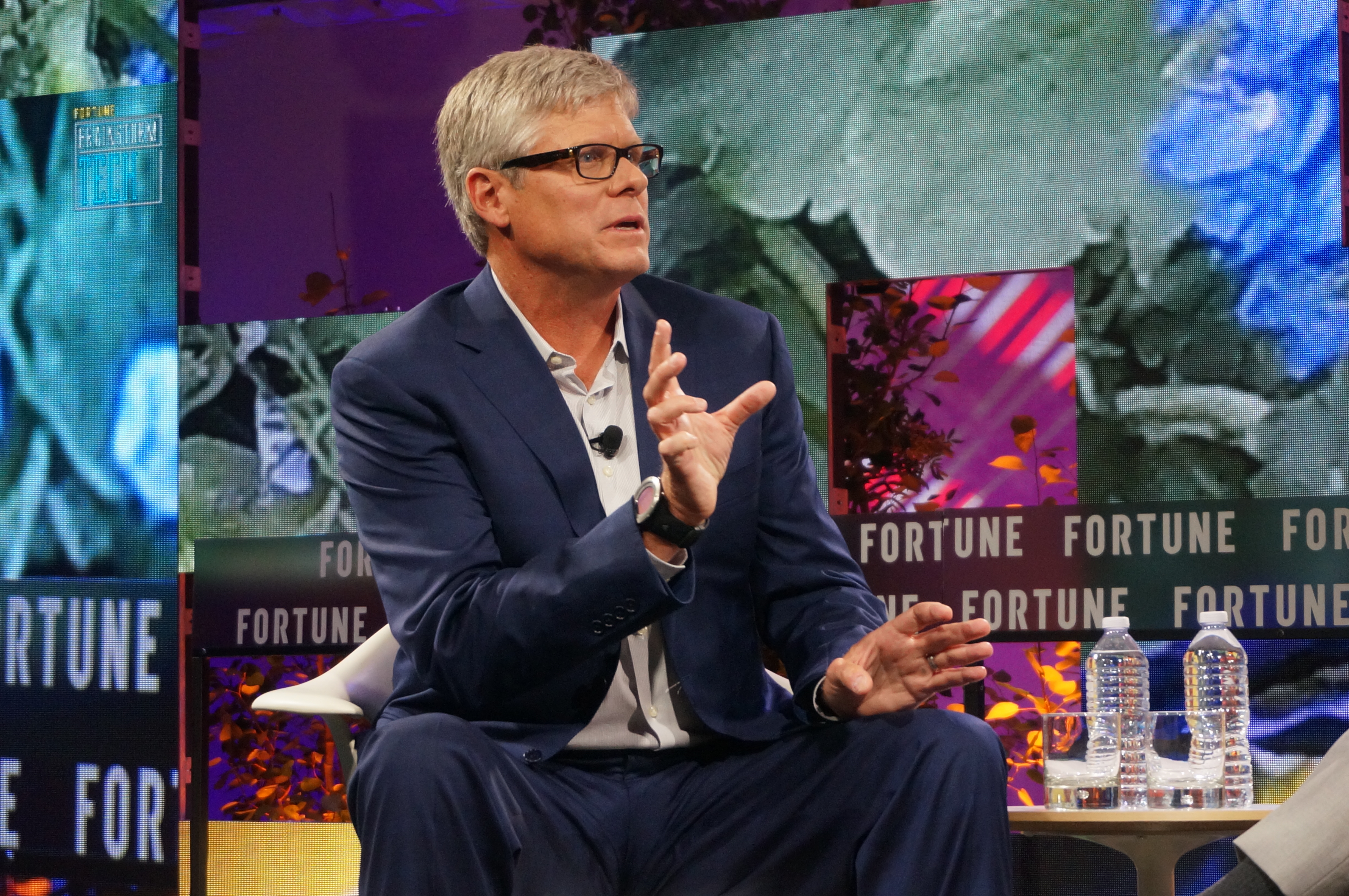Qualcomm ends tie-up with Dutch-based NXP amid US-China friction
Steve Mollenkopf, CEO of Qualcomm, said the tie-up with rival Dutch chipmaker NXP won’t happen as a result of failure to win approval in China (Robert LEVER)
Washington (AFP) – US computer chip giant Qualcomm dropped a $43 billion merger with Dutch rival NXP on Thursday, as the deal became an apparent casualty to trade tensions between Washington and Beijing.
The deal was called off after antitrust authorities in China failed to approve the merger after a two-year wait.
The decision ends the tie-up aimed at creating a diversified chipmaker with Qualcomm’s dominant position in smartphones and NXP’s foothold in the market for chips powering “internet of things” connected devices.
Qualcomm said it would pay NXP a $2 billion dollar breakup fee required under its agreement, and would begin a $30 billion stock repurchase plan.
US Treasury Secretary Steven Mnuchin expressed disappointment that the deal fell through but sidestepped questions on whether it was related to the standoff with Beijing.
The deal “was approved in every single other territory,” Mnuchin told CNBC television, adding that “we’re just looking for US companies to be treated fairly.. I think its unfortunate that that didn’t get approved after a long two-year process.”
Analyst Patrick Moorhead of Moor Insights & Strategy said the merger plan was clearly a victim of the trade dispute between the US and China.
“This wasn’t an American company trying to buy a Chinese company,” Moorhead said.
“There were not even any protests that Qualcomm could go in and fix. To me it’s belligerent and will lead to an escalation.”
The California firm ended its effort when the bid expired at 11:59 pm Eastern time (0359 GMT Thursday).
In Beijing, officials denied that tensions with Washington affected the proposed merger.
“The issue with the case is related to anti-monopoly law enforcement and has nothing to do with China-US trade frictions,” commerce ministry spokesman Gao Feng told reporters at a weekly press briefing Thursday.
He declined further comment, referring to China’s market regulator for additional details.
The deal’s collapse comes with the US set to ramp up tariffs on Chinese imports following President Donald Trump’s complaints of unfair trade.
– Rubio rails at ZTE –
Recently the US imposed tough sanctions on Chinese tech firm ZTE that could have led to the firm’s collapse, but the Trump administration later reached a deal that helped the firm remain in business.
US Senator Marco Rubio slammed the move by China and said Washington should retaliate.
Rubio tweeted that “@CommerceGov does #China a favor & reverses ban on #ZTE buying chips from Qualcomm. And how did China return the favor? By blocking Qualcomm deal with NXP despite the begging & pleading from @USTreasury & Commerce Dept. We should reimpose ZTE ban.”
Qualcomm had extended the deadline several times for the tie-up, which would have given the dominant smartphone chipmaker firm a broader array of products including sensors and microprocessors for connected “internet of things” devices.
It also raised its bid — from $110 to $127 a share — in February, to the irritation of fellow chipmaker Broadcom, which itself recently launched a hostile bid for Qualcomm blocked by the White House.
Washington said the acquisition of Qualcomm by Broadcom — which had been Singapore-based until its recent relocation to the US — would help Chinese competitors such as Huawei, particularly in the emerging market for fifth generation (5G) wireless internet, where a stronger China could present a national security issue.
Based in the Dutch town of Eindhoven, NXP is a leading maker of chips for the auto industry, as well as for contactless payment systems.
A former division of the Dutch electronics giant Philips, it became independent in 2006.
NXP’s president and CEO Richard Clemmer said, “While it is unfortunate that the semiconductor powerhouse that would have resulted from the transaction with Qualcomm could not close after 21 months of diligent efforts by the team, we are confident in our future as an independent market leader.”
burs-rl/jm
Disclaimer: This story has not been edited by Siliconeer and is published from a syndicated feed. Siliconeer does not assume any liability for the above story. Validity of the above story is for 7 Days from original date of publishing. Content copyright AFP.


